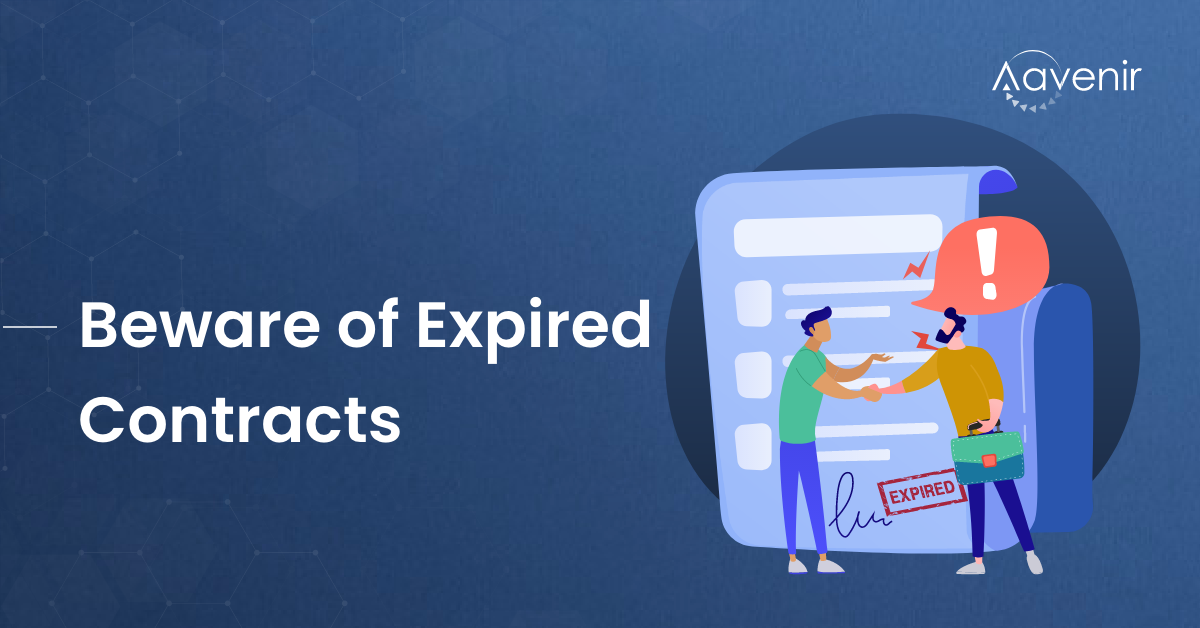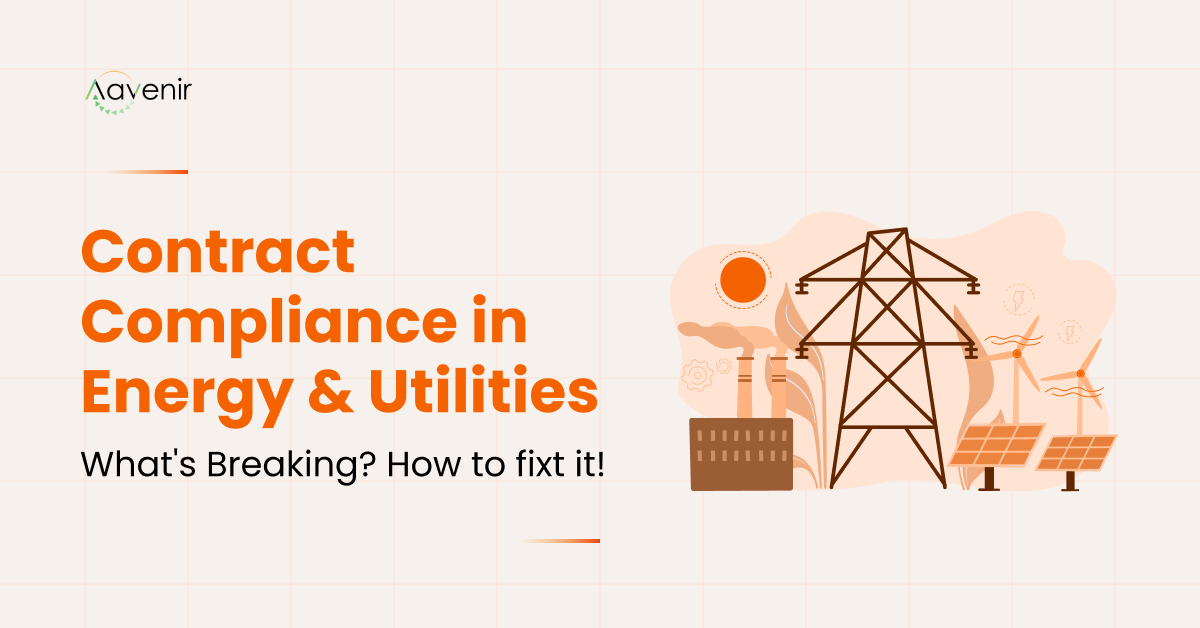Do vendor contracts still exist in your system, but they no longer serve a purpose? A vendor or supplier contract that expires without anyone realizing it, is a serious repercussion of a lack of visibility and could cost you a lot. Are contracts hindering business if not renewed at the right time? To what extent are your vendor contracts past their expiration date? Could contract lifecycle management solutions solve critical pain areas that plague today’s contracting processes, such as delayed or forgotten approvals, lack of visibility into the terms being negotiated, and more?
Below are a few industry scenarios that could happen to you if caught off guard by expired contracts.
Scenario-1: Vendor Contract Management in Real Estate
The existence of a myriad of fixed-term goods and services contracts is normal in an industry like real estate. Parties may meet toward the end of the contract to consider either extending the existing term or engaging in a new contract. Sometimes, however, a contract may expire without the parties realizing and without any express statements made as to what will regulate the parties’ future dealings.
It happens quite often that the procurement department of the real estate industry falls out of contract with their contractors, without realizing it. Their contractors often do not turn up; and, in the initial phase, not showing up contractors cannot be a big issue for them. However, it could be okay for small and temporary projects like gardening and landscaping. But, if the situation persists for long-term IT contracts, it can turn into a major issue.
Assume that, on an investigation, one of the reasons popped up was contracts with no specific dates. Contracts that state that the agreement will last “for a year” but the contract is not dated will make the contract invalid.
In all such cases, real estate companies will need to invest effort and time, maybe a few weeks, in contract renegotiations. This can slow down his business significantly since the attention would not be on core functions.
So, the bottom line here is to stay ahead of contract expirations. Always, renegotiate the terms before your vendor contracts expire and ensure there aren’t any gaps or delays in your projects. This might sound impossible or tedious, but it isn’t. Effective contract management solutions for real estate can not only help in negotiating better terms but also assist in drafting accurate contracts.
Let’s take a look at another example!
Scenario-2: Vendor Contract Management in Higher Education
Universities managing procurement operations are always actively engaged in vendor contract management. Assume that a university has more than five thousand contracts with over two thousand vendors. The university uses CRM software on a five-year contract. During these five years, the CRM software provider raised their annual fee by over 30% over the current annual fee. However, the team did not negotiate the contract before its expiration. So, unfortunately, they now have zero leverage to negotiate a better price. On the other hand, if they wish to switch to another CRM, the high switching costs would be even worse. Further, it can be tricky to keep a track of important deadlines and carry forward obligations, safeguard universities’ sensitive information, and similar others. So, it does not make any sense to look for alternative software. Here, the contracting team at university has no choice but to pay huge chunks to keep his business firing on all cylinders.
Beware of expired vendor contracts, it is more expensive than usual
The above scenarios are difficult for any business to avoid. With hundreds or thousands of contracts across multiple different suppliers, it may seem impossible to be aware of each upcoming expiration date.
- If your vendor contracts expire, they are no longer obligated to honor the terms and obligations that you had negotiated with them. They can abruptly charge at a different price point, for example,, which is likely considerably higher than the contracted rate. This would be an unpleasant surprise for any procurement or finance team, especially if it’s after you’ve already purchased the goods (and perhaps even used them as components within your product).
- After a contract expires, you lose all your leverage to find an alternate supplier, and the cost of your goods can rise exponentially. Avoid this supply chain nightmare by keeping yourself aware in advance if you need to renegotiate your prices.
- Contracts often incorporate a clause that limits price increases upon renewal, typically around 3-5% or incorporates the impact of inflation. However, if the contract expires, this clause will no longer be honored.
- You can’t revive an expired agreement. It no longer legally exists. What you can do is draft a new document that comprises a new term. The parties can agree that the new term is retroactive to the date the contract expired so there is no loss of contract coverage.
- For a contract to be valid, it must contain details of the agreement and contain the signatures of both parties. Legally, a date is not required; if there is an anticipated timeline but a listed date is not on the contract, it is not considered enforceable.
How to identify vendor contracts that are about to expire, 30 or 60 or 90 days ahead of time?
Companies need to have reliable systems in place for monitoring their outstanding contracts to ensure they are not operating under expired contracts. This is exceptionally crucial for companies that include significant risk-mitigation terms in their contract templates, such as damage caps and omissions on specific remedies and damages. Failing to do so exposes these companies to significant risk if a contract expires.
It is hardly possible to revive contracts that have outlived their usefulness. However, you can always beforehand identify all those contracts that are nearing expiration. Artificial Intelligence understands meaning and context in legal language, virtually eliminating the need to read contracts.
There are several Artificial Intelligence-enabled contract management solutions available that send triggers beforehand and save you from the disaster of expired contracts.
Check out Aavenir Contractflow that optimizes contract management with intelligent Artificial Intelligence capabilities. With easy integration with existing systems as well as the ServiceNow procurement services portal, it not only centralizes vendor contracts but also helps you keep a track of your active contracts. It sends automated alerts and reminders at each stage of the life cycle, reducing contract turnaround time and preventing contracts from expiring.
Learn more about Contractflow and its AI Capabilities through a recent webinar!





